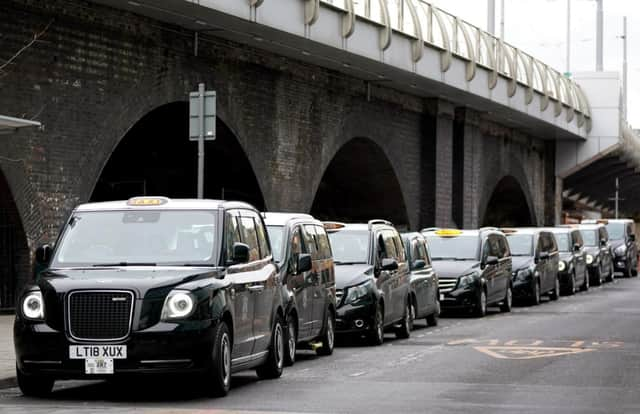Decrease in wheelchair-accessible taxis and private hire vehicles in Doncaster in 2023


Experts suggest the decrease in the number of licensed vehicles accessible for those with mobility difficulties in England and Wales is due to a lack of training and certification for the safe handling and transport of wheelchairs.
Department for Transport figures show Doncaster had 803 licensed vehicles as of April, but only 179 could be used by people with mobility difficulties.
That is a decline from March 2020, when there were 186.
Advertisement
Hide AdAdvertisement
Hide AdTraditional taxis can be hailed from the street, and do not need to be pre-booked like private hire vehicles, such as those used by companies like Uber.
There were 179 taxis in Doncaster, all of which were wheelchair accessible.
Most local authorities require all or part of their taxi fleet to be wheelchair-accessible, but only 5% of them have made it compulsory for private hire vehicles. Doncaster has a policy only for taxis.
There are 624 minicabs in Doncaster, none of which can offer a ride to a wheelchair user.
Advertisement
Hide AdAdvertisement
Hide AdJames Farrar, general secretary of the App Drivers and Couriers Union said: “Big operator firms such as Uber and Addison Lee have not set minimum availability requirements for their fleets, have not committed to minimum service standards and have not provided adequate pay or financial support for drivers to afford the premium cost of these vehicles.
“Likewise, licensing authorities have generally not insisted on such standards as a condition of operator licensing.”
David Lawrie, director of the National Private Hire and Taxi Association said wheelchair-accessible vehicles are often too expensive for drivers to buy, with accessible electric vehicles costing around £70,000.
Across England and Wales, 237,622 (79%) of the total 299,146 licensed vehicles are private hire, with just one in eight of them being wheelchair accessible. There are also over 11,000 fewer taxis on the streets of the two countries this year than in March 2020.
Mr Lawrie added: “There is a massive drop in drivers. And the reason for that is because of lack of government support through Covid.
Advertisement
Hide AdAdvertisement
Hide Ad“Many drivers have gone into the courier business of food deliveries… And they are not going to come back because of the pressure and the regulations on the industry.”
More local authorities started requiring disability awareness training for taxi and private hire vehicles drivers in 2023.
Doncaster requires drivers of both kinds to have it.